Western Academic Leadership Forum Sidebar
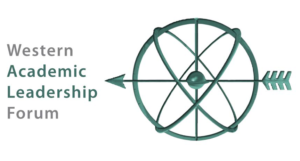
2019 Forum Annual Meeting Program
WEDNESDAY, APRIL 24
8:30 a.m. – 5 p.m.
Registration Open
9:00 a.m. – noon
Closing Seminar–2018 Academy Cohort (cohort and faculty only)
noon – 1 p.m.
Lunch – 2018 Academy Cohort and Executive Committee
1 p.m. – 4:30 p.m.
Executive Committee Meeting (executive committee members only)
1:15 – 5 p.m.
Pre-Meeting Tour: Transformation through Innovation – Metropolitan State University of Denver
Join the Shannon, Campbell, Director of Graduate Studies, on a tour highlighting some of Metropolitan State University of Denver’s key assets including….
- Aerospace and Engineering Sciences Building
- Jordan Student Success Building
- Marriott Hotel & MSU Denver Hospitality Learning Center
- Auraria Library
- And, one more surprise visit before heading back to the hotel!
5:30 – 6:30 p.m.
Welcome Reception
6:30 – 8:30 p.m.
Opening Dinner and Keynote – Mattering and Sense of Belonging: A Focus on First-Generation and Ethnic Minority Students
This talk will discuss the conceptual differences between mattering and sense of belonging. Research findings that disentangle these constructs, while also then proposing that students’ sense of belonging and the extent to which students feel like they matter are related will be presented. Cole will share the direct and indirect effects of ethnic minority and first-generation student experiences on students’ sense of belonging and mattering and offer recommendations for research and practice.
Introducer: Vicki Golich, Metropolitan State University of Denver
Darnell Cole
University of Southern California
Darnell Cole
University of Southern California
Darnell Cole is an associate professor of education with an emphasis in higher education and education psychology at University of Southern California where he also serves as the co-director of the Center for Education, Identity and Social Justice. His areas of research include race/ ethnicity, diversity, college student experiences, and learning. Cole currently serves also as the Chair of the Multicultural/Multiethnic Education: Theory, Research, and Practice Special Interest Group for the American Educational Research Association. He completed his undergraduate work at the University of North Carolina, at Charlotte, and earned his M.A. and Ph.D. degrees at Indiana University, Bloomington. Previously he served as an associate professor in the Department of Educational Administration at the University of Hawaii, Manoa (Honolulu). He was also a faculty member at Marquette University.
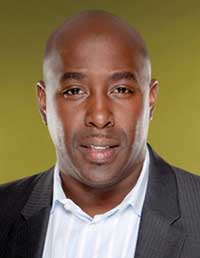
THURSDAY, APRIL 25
7 a.m. – 5:00 p.m.
Registration Open
7:30 – 8:15 a.m.
Breakfast
8:15 – 8:30 a.m.
Good Morning and Meeting Overview
Vicki Golich, Metropolitan State University of Denver
8:30 – 9:30 a.m.
Changing Student Demographics: Adapting Our Institutional Practices to Move Toward Greater Equity
In light of changing student demographics, including the increasing number of students of color, non-traditional students, and the predictions of declining numbers of high school graduates in the near future, how can institutions look at these demographic trends through an equity lens that will guide them toward making changes that will enable them to thrive as institutions while creating the conditions in which students of the future will thrive? What do we need to know and consider as academic leaders about these demographic trends that will prepare us to lead our institutions’ academic missions effectively?
Introducer: Donald Straney, University of Hawaii System
Joel Pérez
Whittier College
Joel Pérez
Whittier College
Joel Pérez serves as the vice president and dean of students at Whittier College, a private, historically Quaker, liberal arts, Hispanic/Minority-Serving Institution located in Southern California. Over the last 15 years he has held various leadership roles at the regional and national level with NASPA – Student Affairs Administrators in Higher Education. Recently, he coauthored the chapter “Pursuing the Dream: Policy, Practice, and Broken Promises for Undocumented Students” in Latinx/a/os in Higher Education: Exploring Identity, Pathways, and Success. He earned his three degrees from institutions in California: a B.S. in business administration from Biola University; a M.Ed. in college student affairs from Azusa Pacific University; and a Ph.D. in higher education administration from Claremont Graduate University.
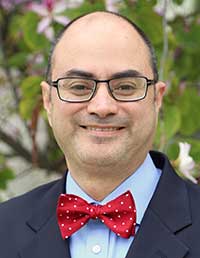
9:30 – 9:45 am
Break
9:45 – 11:00 am
Great Ideas for Inclusive Practices in Higher Education
We claim that all are welcome in higher education, but how does this play out in the lived experiences of our students, faculty, staff, and community members? In this quick-paced session, presenters will share best practices for making higher education an inclusive and welcoming place for all. Come enjoy these exciting two-minute explorations of challenge, action, and success in assuring that all are indeed welcome.
Emcee: Joelle Lien, Northern State University (SD)
Great Ideas: TBA
11:00 – 11:15 am
Break
11:15 am – 12:15 pm
Native American Student Access, Experience, and Success in Higher Education
The underrepresentation of Native American students is due, in part, to the discord between indigenous cultural identity and the culture of higher education. What effective strategies have been deployed to ensure Native American college students’ sense of belonging in higher education? What lessons can we learn from tribal college practice and culture? Join us for an informative panel as we discuss ways to improve the retention of our Native American student population by creating a more intentionally inclusive and welcoming culture.
Moderator: Debbie Storrs, University of North Dakota
Speakers:
Twyla Baker-Demaray
Nueta Hidatsa Sahnish College
Twyla Baker-Demaray
Nueta Hidatsa Sahnish College
Twyla Baker-Demaray is the president of Nueta Hidatsa Sahnish College in New Town, ND. She is a citizen of the Mandan, Hidatsa, & Arikara Nation. Prior to leading the tribal college, she was the director of the National Resource Center on Native American Aging based in Grand Forks, ND. While in Grand Forks she also co-founded the Northstar Council, whose mission is to strengthen and empower indigenous people through research, education, and community development with a focus on the American Indian population of northeast North Dakota. Baker-Demaray holds a B.S. in environmental geology and technology, a M.S. in education, and a Ph.D. in teaching and learning research methodology.
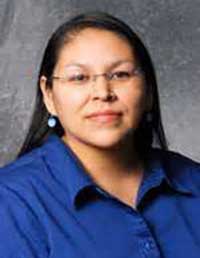
Staci Emm
College of Cooperative Extension, University of Nevada
Staci Emm
College of Cooperative Extension, University of Nevada
Staci Emm has been with the College of Cooperative Extension at the University of Nevada, Reno for 18 years with the last 14 as extension educator in Mineral County. Emm is nationally recognized for agriculture and American Indian extension programs, receiving five national awards and senatorial congressional recognition. She is a project director for the Walker River Reservation for the Federally Recognized Tribes Extension Program (FRTEP) and works with American Indian tribes all over the West with land-tenure, water rights management, and business development. Emm has a B.A. in journalism from University of Nevada, Reno and a Master’s in Agriculture from Colorado State University.
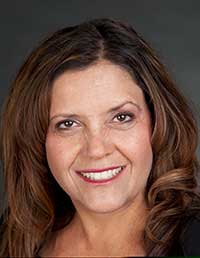
Yvette Tuell
Shoshone-Bannock Tribes
Yvette Tuell
Shoshone-Bannock Tribes
Yvette Tuell is employed with the Shoshone-Bannock Tribes, serving as the policy analyst since 2016. Tuell is responsible for providing policy guidance for the Fort Hall Business Council, in support of the Tribes’ inherent and treaty reserved rights. She also develops, implements and administers tribal policies, and works to improve tribal/federal and state relations. She has a B.A. in anthropology from Idaho State University, a Master’s of Studies in Environmental Law from Vermont Law School, and is currently seeking a doctorate in U.S. history at the University of Utah.
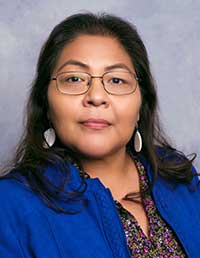
Jason Younker
University of Oregon
Jason Younker
University of Oregon
Jason Younker is the assistant vice president and advisor to the president on sovereignty and government-to-government relations at the University of Oregon and a citizen of the Coquille Indian Tribe. He received his Ph.D. in anthropology from the University of Oregon and returned to Oregon after teaching at Rochester Institute of Technology for a decade. Younker received the prestigious Ely S. Parker Award from the American Indian Science and Engineering Society (2014) for his work with tribal governments and students in higher education. He is the past-president of the Association of Indigenous Anthropologists and is originally from Coos Bay, Oregon.
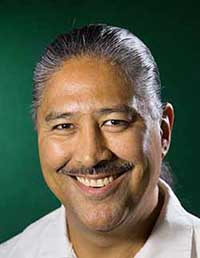
12:15 – 1:15 pm
Colleagues’ Choice Award Luncheon
The Academic Leaders Toolkit—a joint project of the Forum and the Western Alliance of Community College Academic Leaders—will announce the winner of this year’s competition. Make sure your institution is in the running by submitting a tool at http://alt.wiche.edu/ by March 1.
Announcer: Karen Carey, University of Alaska Southeast
1:15 – 1:30 pm
Break
1:30 – 2:30 pm
The Effects of Microaggressions on Faculty of Color
As leaders of institutions, we must fully grasp the impact microaggressions have upon faculty and staff of color, and upon our institutions more broadly. Microaggressions greatly impact not only the academic pathway to the doctorate and thus our hiring pools, but of great significance, the retention of our faculty. Our knowledge and understandings will be insufficient without a goal of determining paths of action to educate about such communication and behavior and how to bring about change, as well as take steps to ameliorate the effects on individuals and their personal and professional lives. This session will briefly outline some of the research, terminology, examples and suggested action steps and will also present personal narratives, including that of a tenured faculty of color co-facilitator.
Introducer: Veronica Dujon, State of Oregon: Higher Education Coordinating Commission
Speakers:
Myron Anderson
University of Texas, San Antonio
Myron Anderson
University of Texas, San Antonio
Myron Anderson serves Metropolitan State University of Denver (MSU Denver) as the Associate to the President for Diversity and Professor in the School of Education. A member of the president’s cabinet, Anderson is the University’s chief diversity officer, responsible for developing an inclusive campus, and articulating and resolving current and future issues related to campus climate, diversity and inclusion. Prior to his current position, he served as associate chair of the Teacher Education Department at MSU Denver, program leader in Continuing Education and director of student services at Virginia Tech and Winston-Salem State University, respectively. Anderson published the article entitled “Hierarchal Microaggressions in Higher Education” in the Journal of Diversity in Higher Education, which has led to the creation of a new term “hierarchal microaggressions” identifying new territory where these actions take place. Anderson earned a Ph.D. in instructional technology, and a B.A. in political science from Virginia Tech, and a Master’s degree in science in curriculum and instruction from Radford University (VA).
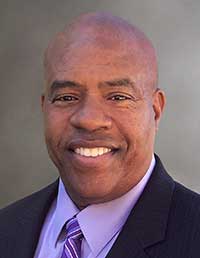
Carmen Suarez
Portland State University (retired)
Carmen Suarez
Portland State University (retired)
Carmen Suarez, until recently retired, held the post of vice president for global diversity and inclusion at Portland State University. Prior to this position, she was the founding chief diversity officer of the University of Idaho. Suarez has developed underrepresented faculty/staff/student strategic recruitment and retention plans, investigated and resolved civil rights and trauma informed complaints, monitored various dimensions of institutional equity, and overseen Title IX, ADA and AA/EEO compliance. She led diversity strategic planning dimensions for two university strategic plans, making concrete the path for institutional inclusive excellence. Suarez has a B.A. and M.A. in history and a PhD in higher education administration.
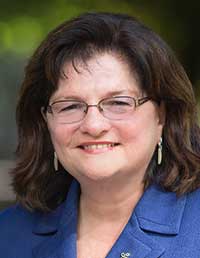
2:30 – 3:30 pm
Workshop: Contingent Faculty and Belonging in Our Institutions
In this double session, expert panelists from the Center for the Study of Academic Labor will provide an overview of “the characteristics and working conditions of contingent faculty, the academic labor market, university budgets, academic employment policies and the future of the tenure system.” Then they will guide us through some exercises in small groups to share our experiences and learn from one another about some of the more pressing issues we face with contingent faculty and ways we can help ensure that ALL faculty belong at our institutions.
Introducer: Vicki Golich, Metropolitan State University of Denver
Speakers:
Sue Doe
Colorado State University
Sue Doe
Colorado State University
Sue Doe is associate professor of English at Colorado State University, vice chair of Faculty Council, director of the Center for the Study of Academic Labor and co-editor of Academic Labor: Research and Artistry. Doe’s research spans three distinct areas–academic labor and the faculty career, writing across the curriculum, and student-veteran transitional literacies in the post-9/11 era.
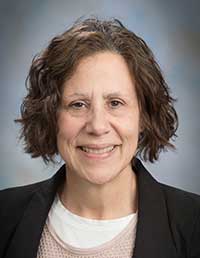
Steven Shulman
Colorado State University
Steven Shulman
Colorado State University
Steven Shulman is a professor of economics and research director for the Center for the Study of Academic Labor at Colorado State University. His current research interest is the economics of higher education. His earlier publications are mostly about labor market outcomes for African Americans, the economic consequences of changes in family structure, the impact of immigration on American workers, and union membership. He earned his B.A., M.A., and Ph.D. from University of Massachusetts at Amherst.
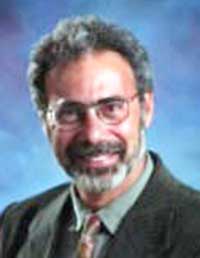
Maria Maisto
New Faculty Majority: The National Coalition for Adjunct and Contingent Equity
Maria Maisto
New Faculty Majority: The National Coalition for Adjunct and Contingent Equity
Maria Maisto is president of New Faculty Majority: The National Coalition for Adjunct and Contingent Equity and serves on the board of The National Faculty Majority (NFM) Foundation, the Center for the Study of Academic Labor, and on the National Advisory Panel of the Carnegie Classification for Community Engagement. She served as executive director of the NFM Foundation and previously worked as an adjunct faculty member in English in Ohio and Maryland. She currently serves as executive director of the Committee for Montgomery, a coalition of labor, education, business, civic, and arts groups in Montgomery County, Maryland.
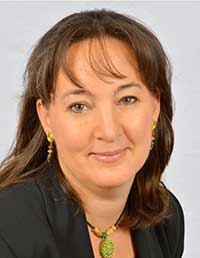
3:30 – 3:45 pm
Break
3:45 – 4:45 pm
Workshop, Continued
Dinner on your own
FRIDAY, APRIL 26
7:30 – 8:15 am
Breakfast
8:15 – 8:30 am
Break
8:30 – 9:30 am
Artificial Intelligence, Our Students’ Futures, and Our Own: The Role of Higher Education in the Age of Intellectual Automation
As Artificial Intelligence becomes a ubiquitous disrupter in the worlds of business and industry and enters even into higher education, how do institutions of higher education need to respond? How can institutions of higher education be sure that students receive the most effective education to prepare them to live and work in a world transformed by the disruptions—foreseen and unforeseen—that AI will continue to bring? What literacies should higher education focus on to prepare these students in a labor market where the threat of automation is encompassing not only traditional blue-collar labor, but now white-collar positions as well?
Introducer: Renny Christopher, Washington State University Vancouver
Safiya Umoja Noble
University of Southern California Annenberg School of Communication
Safiya Umoja Noble
University of Southern California Annenberg School of Communication
Safiya Umoja Noble is an assistant professor at the University of Southern California Annenberg School of Communication. Her research training in critical information studies includes interdisciplinary investigations and methods of understanding the role of online content in relationship to shaping culture, particularly for underrepresented users of online content. Her best-selling monograph on racist and sexist algorithmic bias, entitled Algorithms of Oppression: How Search Engines Reinforce Racism, was recently released in February of 2018. She is the recipient of a Hellman Fellowship and UCLA Early Career Award and holds a Ph.D. and M.S. in library & information science from the University of Illinois at Urbana-Champaign, and a B.A. in sociology from California State University, Fresno.
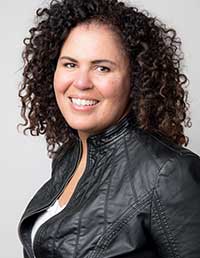
9:30 – 10:45 am
Words Matter
A sense of belonging begins with the way we interact among colleagues, peers, and students. Managing controversial issues in class discussions, sharing opposing views among students as well as colleagues, and gaining awareness of unintended bias, all contribute to whether or not the campus can provide a welcoming space for all. This session will explore these topics using the lessons learned by speakers and provide ideas for proactive solutions to share on your campus.
Moderator: Greg Fant, New Mexico State University
Speakers:
Abby Ferber
University of Colorado Colorado Springs
Abby Ferber
University of Colorado Colorado Springs
Abby Ferber is professor of sociology and women’s and ethnic studies at the University of Colorado Colorado Springs, as well as co-founder and director of The Matrix Center for the Advancement of Social Equity and Inclusion and The Knapsack Institute: Transforming Teaching and Learning. She is the author/editor of eight books, including Home Grown Hate, and researches, teaches and speaks around the country about intersectionality, privilege, the white nationalist movement, and contemporary issues in higher education, including inclusive pedagogy, student conflict, academic freedom, and cyber harassment of faculty. She earned her Ph.D. from the University of Oregon in 1994.
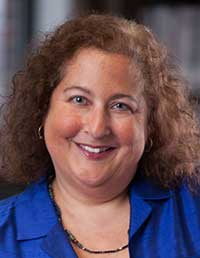
Rebecca Tsosie
University of Arizona
Rebecca Tsosie
University of Arizona
Rebecca Tsosie is a Regents’ Professor of Law at the University of Arizona and faculty co-chair of the Indigenous Peoples’ Law and Policy Program. She was recently appointed as vice provost for inclusion and multicultural engagement after serving for two years as special advisor to the provost for diversity and inclusion. In her new role, she will work with faculty and administrators to align the university’s core values of diversity and inclusion with the intellectual mission and new strategic plan of the university. Tsosie received her B.A. and J.D. degrees from the University of California, Los Angeles.
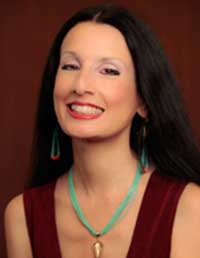
10:45 – 11:00 am
Break
11:00 – 11:45 am
Membership Meeting
Committee Breakouts
In July 2018, the Forum’s leadership established several committees to explore opportunities for collaboration at the regional level. Join one of the committees to find out about its progress and how you can take advantage of their work or help shape it.
Committees:
- Accelerated Learning/Dual Enrollment – Veronica Dujon, Oregon Higher Education Coordinating Commission
- Diversifying the Faculty Initiative – Renny Christopher, Washington State University Vancouver
- Library Subscription Fees – Paul Turman, South Dakota Board of Regents
- Open Educational Resources Repository – Karen Carey, University of Alaska Southeast
- Pragmatic Policies to Promote Course-Based Experiential Learning – David Shintani, University of Nevada, Reno
- Wellness– Laura Woodworth-Ney, Idaho State University
11:45 – noon
Meeting Wrap-up and Adjournment